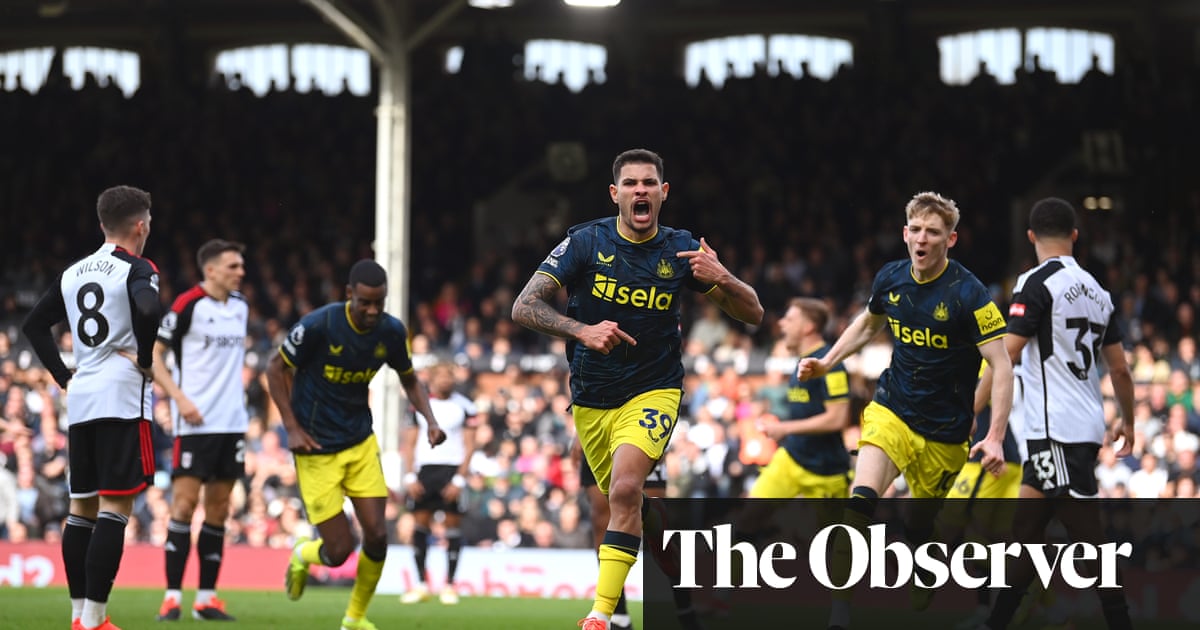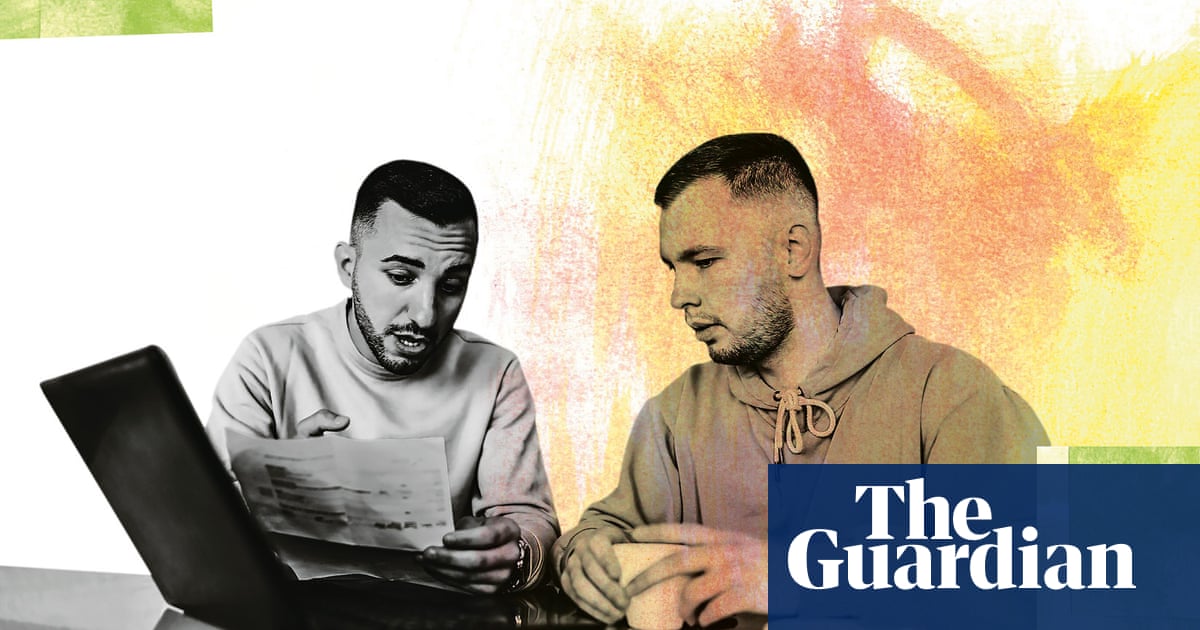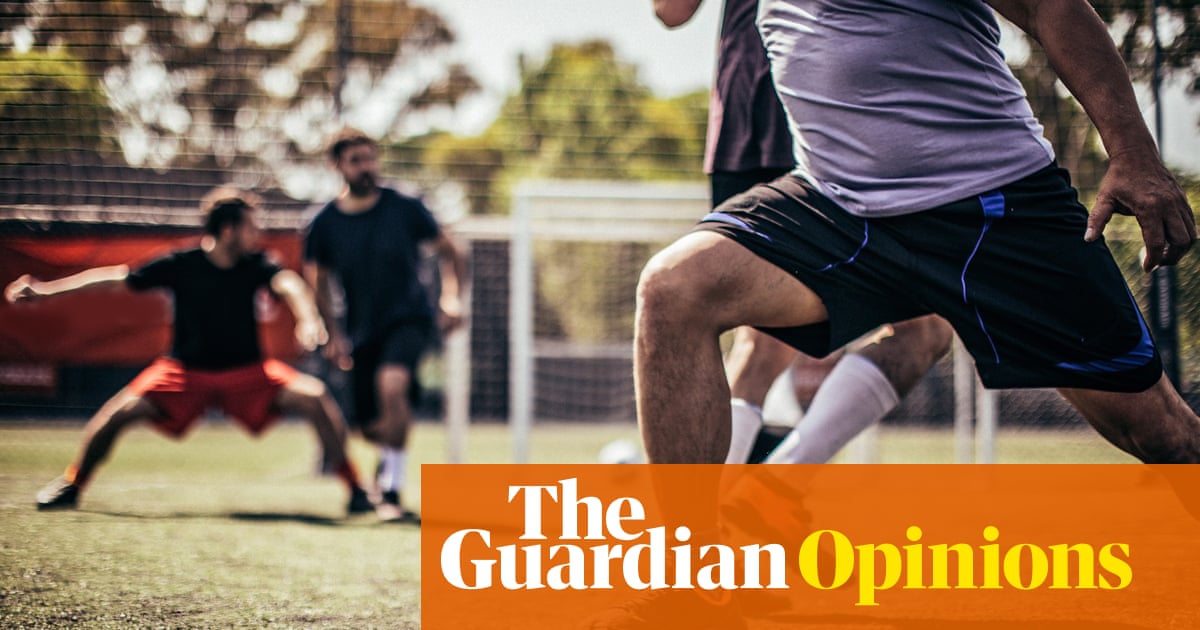
Ilived in Newcastle for a while in the late 1990s and absolutely loved my time there. Nights out in the Bigg Market and on the Quayside, dancing on the rotating dancefloor of the Tuxedo Princess, a boat-turned-nightclub, and the occasional short walk from the town centre to St James’ Park to see Newcastle United. As co-owner of Grimsby Town, I know how the football club looms large in people’s imaginations and their sense of civic identity, especially in post-industrial towns and cities. That’s why it struck me as odd when news of the Saudi-led takeover of the club was met with almost universal delight from the fanbase.
It’s been difficult to absorb on a couple of levels. First, Saudi Arabia is an absolute monarchy ruled under sharia law: how can the notion of independence of ownership make any rational sense for a consortium bound by the customs and practices of that country? Then there are issues such as the attitude towards the rights of women in their own country, the violations in Yemen or the killing of the journalist Jamal Khashoggi. If I was a fan I’d be keen to understand the manner of the “legally binding assurances” that there will be no interference from the ruling elite of the country they are from. Moreover, the deal raises serious questions about the Premier League’s own bar for moral and financial suitability, the owners’ and directors’ test. Can they really be satisfied that the consortium will act independently of the Saudi state?
Obviously, the consortium will bring vast amounts of money and investment to the north-east, and undoubtedly, the team will be full of even bigger names over the coming years, but at what cost to the region’s integrity? The primacy of money over every other consideration is a continuation of the issues we saw with the European Super League debacle. Newcastle fans only have to think back a few months to see how international owners really feel about the fans who live in the communities of the clubs, those who walk through the turnstiles at each home game, and realise they are secondary to global audiences and revenue maximisation.
Our view of organisations as purely economic entities can only be a partial version of the truth. Much of what is important and valuable is clearly non-monetary or even measurable. Yet mainstream economics has long been concerned only with profit and competition; as Milton Friedman put it in 1970, the “sole purpose of a business is to generate profits for its shareholders”. It is perhaps time to listen more attentively to the words of Robert Kennedy, who in 1968 stated that GDP “measures everything except that which is worthwhile”.
The belief that profit is the only measurement of value has long characterised the way our economy and our football clubs are managed, often with disastrous results. Last month, Derby County went into administration and, like many football fans, I have followed the story with interest, not least because the club has been docked 12 points by the Football League, sending them to the foot of the Championship, the second-tier of English football.
In the language of economics, the loss of status and civic pride resulting from the closure of a football club would be regarded as a mere “externality”. In recent memory Bolton, Bury and Macclesfield have all “done a Leeds” when their owners could no longer fund the failures of their strategies. Those clubs and their fans now face a potential decades-long climb to reclaim their former glories.
If capitalism is to sustain football for the next 100 years, it will need to put the interests of fans and the local community above those of shareholders. Fans are the most important constituent of football clubs, bar none. Every weekend many travel hundreds of miles to support their teams, home or away. This is why Grimsby Town FC is 17% fan-owned through the Mariners Trust supporters’ group, a fully democratic representation of our fanbase that holds two of the five seats on our board. This type of ownership model needs to be enforced in clubs across the country, giving fans a meaningful seat at the table in every boardroom of every professional club in the UK.
It is the sense of togetherness that has helped Grimsby Town to have our best start to a season since 1982. Despite the football cliches that “nothing gets won in October”, we are quietly pleased about the positive start to our season. A large amount of credit goes to the revitalised fanbase who are embracing the new era in our corner of north-east Lincolnshire.
To prevent another tragedy like Derby, we need a strengthening of the oversight of financial suitability to run clubs through reforms in the owners’ and directors’ test. There are already oversight measures in place to ensure financial stability at the point of purchase but owners should be obliged to demonstrate how they will cover projected losses on an ongoing basis. Issues around ownership are not merely a question of finances, however. For newly monied Newcastle there need to be commitments to the values of the local community to ensure that those steeped in the club’s history and rooted in the local area are the primary stakeholders in the vision for the team. When success is transactional and bought through the brute force of money alone, what’s left for the ordinary fan to call their own?
I am sure many football fans are keen to see what the government’s forthcoming fan-led review delivers, and how durable and meaningful its recommendations on ownership are. While any reform has come too late for Derby fans (or the few Newcastle supporters who seem to care), perhaps a different way of thinking about football could extend beyond the world of sport, encompassing a different way of thinking about what we value in life.
Jason Stockwood is a technology entrepreneur, fellow at Oxford University and chairman of Grimsby Town FC












